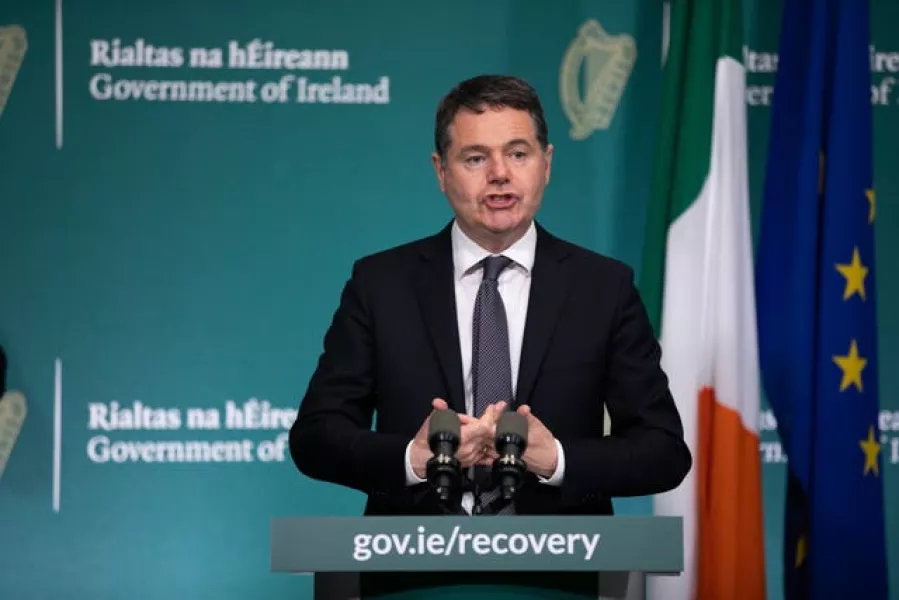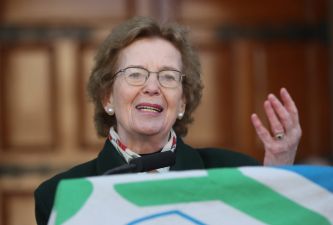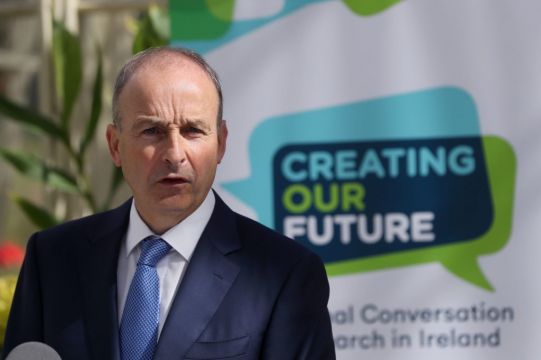All aspects of life will be impacted by climate change “with increasingly devastating consequences” unless action is taken, the Taoiseach has said.
Micheál Martin was responding to the findings of the Intergovernmental Panel on Climate Change (IPCC) report published on Monday.
The world will reach or exceed temperature rises of 1.5 degrees Celsius – a limit countries have pledged to try to keep to in order to avoid the most dangerous consequences of warming – over the next two decades, the report says.
Temperature rises will continue until mid century – and without fast, deep reductions in greenhouse gases will, over the course of the 21st century, exceed both the 1.5 and 2 degree limits set by countries in the Paris climate treaty.
The #IPCCReport is a hugely important statement on #ClimateChange – a ‘code red’ for humanity.
Our breakthrough Climate Act commits to a 51% cut in emissions by 2030, and climate neutrality by 2050.
Government, citizens, industry and communities must all embrace the challenge.Advertisement— Micheál Martin (@MichealMartinTD) August 10, 2021
Mr Martin said he agreed with the assessment of UN Secretary General António Guterres that the report is a “code red for humanity.”
He added: “For the first time, the IPCC have broken these impacts down to a regional level, showing that climate change will affect us all.
“Our ways of life – urban, coastal and rural – will all be impacted by climate change, with increasingly devastating consequences for lives, livelihoods and nature unless immediate action is taken.”
The Taoiseach said it would still be possible to keep the world temperature rises below two degrees, but only with a concentrated international effort.
He said: “Climatic changes are no longer assigned to some distant future.
“The devastating floods across Europe this summer, raging wildfires across the Mediterranean and record-breaking heatwaves in the US and Canada are testament to this.
“Keeping world temperatures below 1.5 degrees has been the higher level ambition of the Paris Agreement, but this report now predicts that the world will exceed this temperature limit.
“Keeping the world below two degrees is still possible, but only with concerted efforts across Governments leading to immediate and dramatic cuts in all greenhouse gas emissions.”
Mr Martin said this years UN’s climate change conference, COP 26, will be vital in facing this challenge.
“Translating science and urgency into policy and action is one of the most important challenges that we as a nation now face, and COP 26 with full and active Irish participation will provide a critical forum to achieve this,” he said.
He also called on Irish citizens to step up and do their part.
“Government on its own cannot make the difference required,” he said.
“In our Republic, every citizen, industry and community must embrace this challenge and make the decisions necessary for positive change.
“I am absolutely confident that we understand the scale of what needs to be done and that we are equal to the task.”
Climate budget
Earlier, the Minister for Finance said the issue of climate change will be “central” to all discussions and deliberations in October’s budget.
Speaking at Government Buildings on Tuesday, Paschal Donohoe acknowledged the scale of the challenge facing Ireland and the world over the coming years as countries seek to reduce the impact of global warming.

Ireland recently passed a Climate Act, which commits the Government to reaching net-zero greenhouse gas emissions by 2050, and to cutting emissions by 50 per cent in the next nine years.
The Government will also publish a Climate Action Plan, setting out how it will reach the targets.
Mr Donohoe said the Intergovernmental Panel on Climate Change report “reminded us of the threat to our civilisation”.
The Government has committed to increasing carbon tax to 100 euro per tonne by 2030 – in last October’s Budget it rose to 33.50 euro.

Mr Donohoe said he remains “committed” to that 2030 target.
Earlier on Tuesday, former president Mary Robinson said that, while Ireland was no longer a “laggard” on climate change policy, the Government needs to set out its “actual plan” to tackle climate change.
“Ireland has gone from being a laggard,” she said. “But now we need to see the actual plan, the steps, and that does need not just the Government’s leadership but Government and opposition leadership.”







